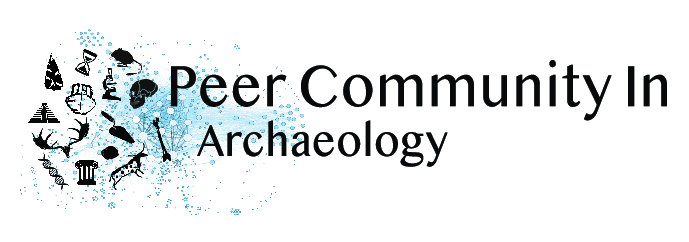About Peer Community in Archaeology
Free and transparent preprint peer-review and recommendation by and for researchers in Archaeology.
Back to Peer Community in Archaeology's group pageSummary
Peer Community in Archaeology (PCI Archaeology) has been launched in March 2019. It is a community of recommenders playing the role of editors who recommend unpublished articles based on peer-reviews to make them complete, reliable and citable articles, without the need for publication in ‘traditional’ journals. Evaluation and recommendation by PCI Archaeology are free of charge. When a recommender decides to recommend an article, he/she writes a recommendation text that is published along with all the editorial correspondence (reviews, recommender's decisions, authors’ replies) by PCI Archaeology. The article itself is not published by PCI Archaeology; it remains in the preprint server where it has been posted by the authors. PCI Archaeology recommenders can also recommend, but to a lesser extent, postprints.
Evaluation model
Which manuscripts can be recommended by PCI Archeology?
PCI Archaeology will evaluate preprints, and to a lesser extent articles published in journals, dealing with all fields of archaeology, anthropology and human-environment interactions, worldwide, since the appearance of human cultures. This include all kind of disciplines, and methods that enhance our knowledge about the human past.
The articles recommended may have diverse formats: reviews, comments, opinion papers, research articles, data papers, technical notes, computer notes, movies, etc. No editing, formatting or proofing of the recommended papers is required. We only ask the authors of recommended articles to add a cover page to their article and a sentence at the beginning of the abstract stating that their article has been recommended by PCI Archaeology.
PCI Archaeology welcomes anonymous submissions.
PCI Archaeology is a community of the parent project Peer Community In, an original idea of Denis Bourguet, Benoit Facon and Thomas Guillemaud.
PCI Archaeology is not designed to be a free peer-reviewing service for authors aiming to improve their articles before submission to a journal. It is, of course, possible, for authors to then submit their recommended article to a traditional journal.
PCI Archaeology is free: there are no fees associated with the evaluation process, and no charge for access to the comments and recommendations. The website is freely accessible.
PCI Archaeology is transparent: Reviews and recommendations (for unpublished articles) and recommendations (for published articles) are freely available for consultation. Recommendations are signed by the recommenders. Reviews may also be signed if the reviewers agree to do so.
PCI Archaeology is not exclusive: An article may be recommended by different Peer Communities in X (a feature of particular interest for articles relating to multidisciplinary studies) and may even be published in a traditional journal.
PReF
Sciety uses the PReF (preprint review features) descriptors to describe key elements of each Group's evaluation activities, helping readers to interpret and compare their evaluations. Learn more.
- Review requested by
- Authors
- Reviewer selected by
- Editor, service, or community
- Public interaction
- No
- Inclusion of author response
- Yes
- Decision
- Binary decision
- Review coverage
- Complete paper
- Reviewer identity known to
- Editor or service
- Competing interests
- Checked
People
Co-founders
- Alain Queffelec (Univ. Bordeaux, CNRS, France)
- Bruno Maureille (Univ. Bordeaux, CNRS, France)
- Sébastien Villotte (Univ. Bordeaux, CNRS, France)
Managers
- Marta Arzarello (Univ. Ferrara, Italy)
- Ruth Blasco (CENIEH, Spain)
- Luc Doyon (Shandong Univ., China)
- Sian Halcrow (Univ. Otago, New Zealand)
- Aitor Ruiz-Redondo (Univ. Southampton, United Kingdom)
- Philip Van Peer (Univ. Leuven, Belgium)
Read more about Peer Community in Archaeology.
Content license
Authors of comments, reviews and recommendations retain copyright© under CC BY-ND.
